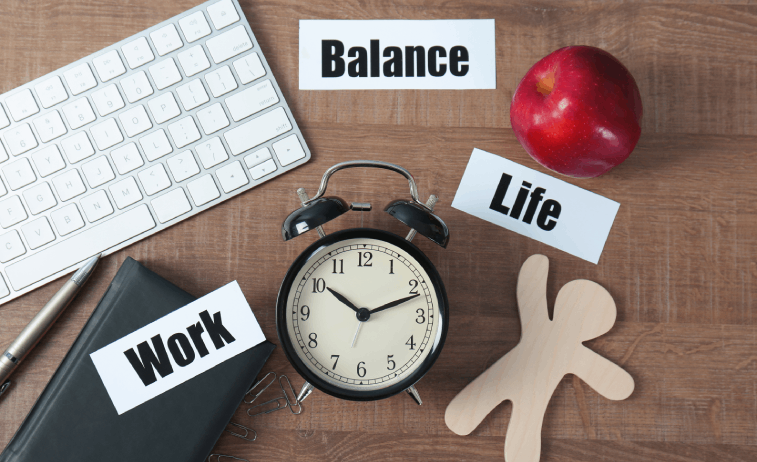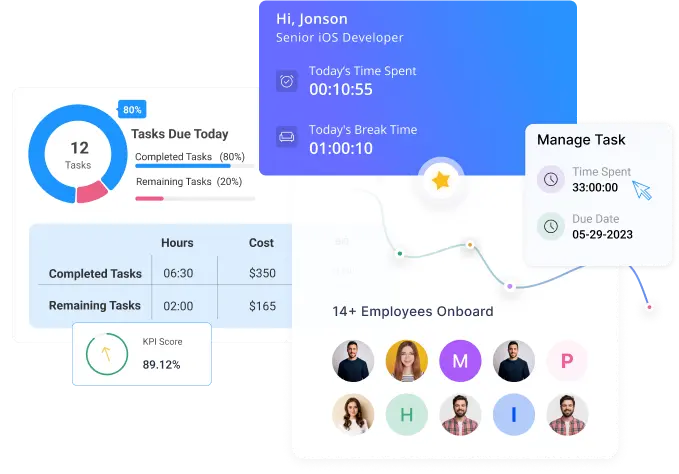 Tracey Taylor
Tracey Taylor
Jun 20, 2025
Reading Time: 6 Minutes

Success is not about working harder—it is about working smarter.
Even though time is the one resource we will never recover, many experts get trapped in an irritating loop of long hours and falling revenues. Just heaping on the hours does not generate better outcomes, studies from Stanford University reveal that productivity drops when somebody works over 50 hours per week. Efficiency is vital, not only nice to have, in the busy modern workplace.
According to a study by McKinsey. Those companies which organize productivity techniques could enable their employees to increase their productivity by up to 25%. The added efficiency gives more time for creative expression, strategic thinking, and personal development.
You have landed on the right spot to learn about mastering time management and getting the most out of your workday. We will explore in this post what time efficiency truly means and why it is important, along with offering several hands-on ideas to assist you to work more intelligently. Let us jump right inside.
Effective time management means finishing tasks well with less waste of energy and time. It is all about increasing efficiency without adding more hours to your day. This means tuning your methods, removing all distractions, and getting rid of all inefficiencies. Contrary to popular opinion, increased hours do not always result in extra productivity. Research from Stanford University showed that working more than 50 hours a week effectively reduces output per hour, and a rise to 55 hours exacerbates the fall, making the overtime useless.
Time efficiency is not about pushing more, it is about working smarter. Using organized planning, strategically arranging priorities, and maximizing technology, employees may simplify their tasks, reduce stress, and improve their general work satisfaction. Research from McKinsey and Company shows that people who effectively apply productivity tools might increase their efficiency by up to 25%. Professionals who learn the art of time efficiency can improve their work, avoid burnout, and create time for creativity and personal development.

Want to take control of your time? Try StaffViz for FREE
More important for your total wellbeing, in both personal and professional spheres, is time efficiency as much about checking items off a list.
When you give efficiency top priority, your job satisfaction rises as you accomplish assignments faster and better.
Efficient processes free up time for personal hobbies, therefore aiding you in preserving a better equilibrium between your personal and professional lives. Hitting time limits without the lastminute frenzy provides you a feeling of authority and helps to lower workplace stress. For companies, cost savings come from being time efficient—less waste, streamlined operations, and reduced operations expenditures.

Here are a few strategies that help you enhance time efficiency:
A methodical approach to task management helps you to truly improve your speed. Here is how you could do it:
Writing down goals according to Dominican University research raises people's chances of achieving them by 42%. By means of the SMART method (Specific, Measurable, Achievable, Relevant, Timebound), one can truly define one's goals and retain focus. With the Eisenhower Matrix, a commonly used tool for arranging what is urgent versus what is important, you may better control your work level so. According to research published in the Journal of Applied Psychology, people who use time blocking methods or the Pomodoro technique usually have more focus and lower burnout.
According to a Capterra study, 77% of high performing teams depend on project management tools like Asana or Trello to monitor tasks and encourage collaboration. Research by Gallup shows that good delegation might raise a company's revenues by 33% and help to lower staff burnout. Research from Stanford University reveals that multitasking may indeed reduce your cognitive ability and productivity. Rather, paying attention to one thing at a time will improve your speed as well as precision.

Distractions can truly destroy productivity, can they not? Here are several practical approaches to address them:
Studies reveal that workers commonly spend around 2.5 hours daily just getting back on track after interregnums. Identifying what draws you off, like incessant notifications, social media surfing, or the noise of little talks around you—lets you manage it. According to a University of California study, it gives or takes about 23 minutes to recover focus following distraction. Try using the "Do Not Disturb" settings on your devices and think about time tracking apps to help with this.
Your power to focus will increase if your desk is kept organized and you wear noise-cancelling earphones. According to the Princeton Neuroscience Institute, chaotic surroundings can significantly impede your processing of information and your concentration.

Unintentionally prolonging projects and wasting time is possible if messages go astray. Clear communication, says research from MIT Sloan Management Review, helps to reduce mistakes and save up to 17% of work time. A couple of pointers to keep everything going smoothly are to be clear and concise.
A Forbes Investigation found that quick messaging is great for urgent problems, whereas emails are more appropriate for thorough, nonurgent discussions. Inefficient results could result from inappropriate communication technology. A Project Management Institute study discovered that unclear goals seriously contribute to project failure. Setting clear expectations helps to reduce the need for rework and decrease uncertainty.

According to data from Rescue Time, employees who use time tracking tools are 30% more productive. Automation and digital tools can indeed relieve the burden and increase efficiency. This is so since they acquire significant knowledge about their work patterns and can identify specific issues for improvement. Todoist or Notion helps you to better keep tasks and handle schedules. Using digital task management can increase completion rates by 26%.
Automating lets you free up valuable time by limiting workload. According to a McKinsey study, our current technology could automate 45% of work activities.

More than just completing items on your to-do list, time efficiency is about managing your calendar and focusing on what counts. Professionals who are suitable time managers usually have more job satisfaction, less anxiety, and a more balanced work life reality, according to studies. Optimizing your workday not only improves output but also allows for personal growth, deeper friendships, and leisure that help to set long term success. So, why not start appreciating time efficiency now? Develop a more satisfying, relaxed, and goal-oriented career. The potential is in your hands; use your time wisely and appreciate every moment.
Enhance team efficiency and collaboration with StaffViz, the ultimate tool for managing remote and hybrid teams.
START FREE TRIAL
Powered by Staffviz